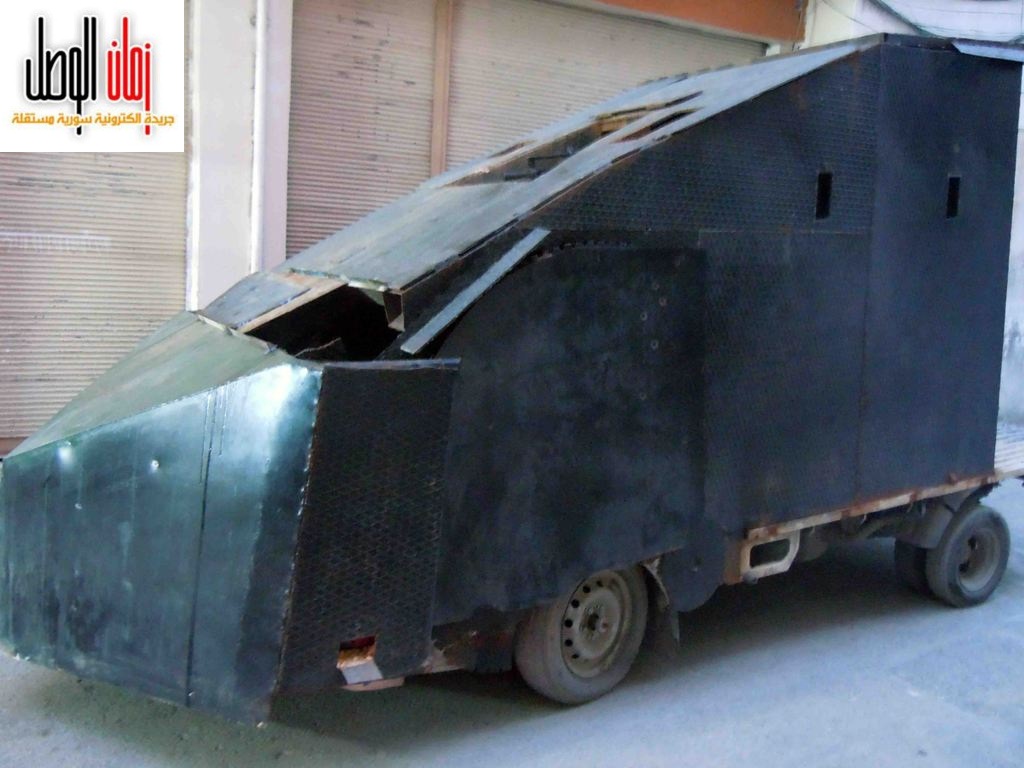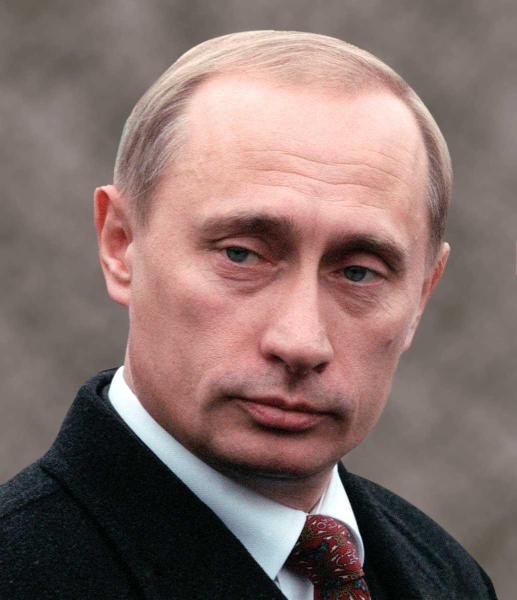This perked me up, just because Syria is the new ‘Libya’ when it comes to any kind of western involvement. But involvement is a lot more precarious in this case, and the folks we would be supporting are questionable. And like the piece below mentioned, we tend to arm and train folks that end up turning against us down the line. So the author below presents the alternative, or using mercenaries, as opposed to arming rebels and forever losing control of the weapons we throw at the problem.
What makes this article so interesting to me, is the author. This guy is not some yahoo. He is the CEO of Diligent Innovations and a former ‘Director of Strategy for the White House Homeland Security Council(Feb.-Oct., 2007) , Intelligence Officer for the Office of the Secretary of Defense, and Senior Analyst for the Chairman of the Joint Chiefs of Staff‘ . You might also recognize him from all of the interviews he has done on the various cable news shows.
Not only that, but he is a Wikistrat expert. Wikistrat has quite the pool of experts and to be one of them, you have to have some game in the beltway. Some of his fellow Wikistrat experts include such names as John Robb of Global Guerrillas, Dr. Ann Marie-Slaughter (R2P), Dr. Thomas PM Barnett (Sys Admin), Professor Allison Stanger, and the list goes on….
So back to this deal in Syria. I would be curious if this concept of using mercenaries instead of arming folks has been mulled around at Wikistrat? Or if Michael has actually given this some serious thought on how this would work?
Or it could be just a piece that raises an idea for those to either support or strike down based on it’s merits. From a technical point of view, I guess a company could be called upon to perform offensive operations. MPRI definitely helped in the planning and strategy for Croatia during the Balkans crisis. Executive Outcomes was contracted to fight and win wars both in Sierra Leone and Angola. So technically, a company or companies could provide this service. (the author mentioned The Flying Tigers, and he gets kudos for that!)
In Libya, contractors and mercenaries were used on both sides of the conflict, and they are still there. Hell, contractors were calling in targets for the air campaign and individuals were joining the rebel army. Here is a quote from Simon Mann about Libya.
In the Libyan revolution further lines of demarcation – between government forces and PMC forces – became more blurred. From Tripoli it has been reported that UK ex-Special Forces were used, in some places, instead of regular troops. This came about because of the uncontrolled and the ‘everywhere’ presence of war correspondents, accredited and otherwise. Their prying eyes made the covert deployment of SAS and SBS troops difficult.
Even so, the need for trained laser designator operators to bring in air dropped laser bombs, with as much precision as possible, had to be met. Therefore designator kits were supplied to ex- UK SF contractors. These were men whose salaries were being paid for by the oil companies, for oil field site security. They were already in country, already on contract.
Even for Syria, there have been reports of contractor involvement. During the whole STRATFOR data breach deal, emails detailed that SCG International has been involved with helping the opposition in Syria.
So I guess my point is that the waters are being tested for how best to approach Syria. Do we do nothing and allow a brutal regime to murder their own people? Do we arm and train the opposition, with the possibility that some day those weapons and training might be used against the west? Or do we send in mercenaries because sending troops is something a war weary west is not that interested in or willing to pay for? Or maybe we do nothing at all, and watch a massacre take place. Not a lot of easy answers.
One thing is for sure. If Syria falls, then jihadists would be able to capitalize on the situation. If weapons and munitions are captured or liberated during the course of the revolution (much like what happened in Libya), they will find their way into other wars and terrorist operations.
Jihadists will also find their way into the politics of Syria, much like how the Muslim Brotherhood gained political market share in Egypt. So basically we would see extremists replace a dictator. The question here is can the west win over a rebel group and gain influence by assisting them, or will we be demonized despite our actions and contributions, just because of the islamic extremist influence within that revolution? Can we compete in that kind of environment and should we be involved?
Might I also add that Saudi Arabia and GCC nations are getting involved and adding money to the pot. Upper level leadership in the US are getting involved and pushing to do something in Syria. Of course Russia is sending folks to support Assad, and China is showing their support for Assad as well. So things are happening and who knows how this will turn out.
It is also important to bring up this responsibility to protect deal as well. If the west feels it has an obligation to intervene–to stop a massacre, then something more than talk needs to happen. It takes action and the will to make it happen, and it also requires a realistic look at what we want to accomplish strategically in the region. Sending troops is a bridge too far for a war weary, cash strapped, and politically paranoid/sensitive west, and maybe contractors paid by GCC donors is the ticket? I will keep a look out for further industry involvement in Syria and this one will be interesting to follow. –Matt
In Syria, send in the mercenaries
J. Michael Barrett
April 10, 2012
The world community, including the United States, is at a crossroads about the right steps to forcefully prevent the further slaughter of civilians in Syria. There are many good reasons to intervene — to stop the death, detention and probable torture of any number of innocents; to support the democratic right of people to consent to rule by a freely elected government; and to avoid a repeat of the U.S. inaction that allowed Iran’s dictatorship to prevail in 2009.
There are just as many reasons not to intervene — the sovereignty of nations; the moral hazard of providing U.S. troops where our national interest does not dictate; and the uncertainty about those we would be helping take power. All the while, do-nothing diplomatic talks and easily ignored cease-fires continue to fail because the talking doesn’t change the facts on the ground.
But is there another way — something more effective than merely clamoring for calm, but less direct than intervening militarily or arming and training the rebels?
In fact, there is. Throughout the ages, the answer to such situations has been to raise an army for hire and send in the mercenaries. This was done throughout the great power struggles of the first and second millennia across the globe, and in more recent decades across Africa. Libya’s Gadhafi tried to use mercenaries to defend his regime just last year. We also placed many guns-for-hire in Iraq and Afghanistan, provided by the likes of Triple Canopy and the company formerly known as Blackwater.
Perhaps the most relevant example here is the World War II American Volunteers Group, better known as the “Flying Tigers.” Prior to Pearl Harbor, when America was not yet party to World War II, these combat pilots’ actions were known but not officially endorsed by the White House under President Franklin Roosevelt. They were pure mercenaries, pilots who resigned their U.S. military commissions to serve in a foreign air force for high pay — some received $600 a month in 1941 dollars and with the promise of $500 more for every Japanese plane they shot down.
The pay-for-service model suited the needs of the day. It allowed skilled fighters to side-step the moral and legal hazard of sending uniformed U.S. troops, whose duty is to uphold the Constitution by fighting our enemies, not to intervene in missions that lack a direct national security rationale.
One potential roadblock of note is the Neutrality Act of 1794, a centuries-old congressional effort to ensure the then-fledgling U.S. was not dragged into wars by citizens acting as mercenaries in conflicts where the United States was not engaged. However, this law, rarely enforced, reflects outdated thinking about the modality and nature of declarations of war. It also treats violations as a misdemeanor. If the imperative to save lives is so strong, Congress or President Obama could surely find a path around it, including a waiver or other injunction. Beyond that, the government’s only role would be to work behind the scenes to have Saudi Arabia and other interested nations pick up the tab, much as they did during the process of countering the Soviet invasion in Afghanistan in the 1980s.
Given the perceived imperative to intervene in Syria, but the countervailing duty to respect state sovereignty and the lack of United Nations sanction (due to perpetual vetoes by China and Russia), mercenaries might well be the best prescription, Neutrality Act or no. They would allow the U.S. to avoid arming the locals directly, about whose character and intent we know little.
This would not resolve the underlying question of who comes to power after the regime falls, but it would allow for a humane defense of the Syrian population without committing America officially or putting American soldiers, sailors, airmen and Marines at risk.
J. Michael Barrett, the CEO of Diligent Innovations, is a former Director of Strategy for the White House Homeland Security Council and a former Naval Intelligence Officer.
Link to post here.
—————————————————————-
J.Michael Barrett
Mike is a national security expert and noted author with an extensive background in defense policy, military intelligence, and support to US counter-terrorism operations. His extensive national security credentials include serving as the Director of Strategy for the White House Homeland Security Council, Intelligence Officer for the Office of the Secretary of Defense, and Senior Analyst for the Chairman of the Joint Chiefs of Staff (Feb.-Oct., 2007).
Mike has been interviewed on television and radio by ABC, The Canadian Broadcast Company, Fox News, FRONTLINE, MSNBC, NBC, NPR, The New York Metro News, New York Sun, and The Washington Post. He also is the co-author of two books on security and counter-terrorism (including a New York Times Best Seller) and has authored more than a dozen journal and opinion-editorial articles.
(more…)

